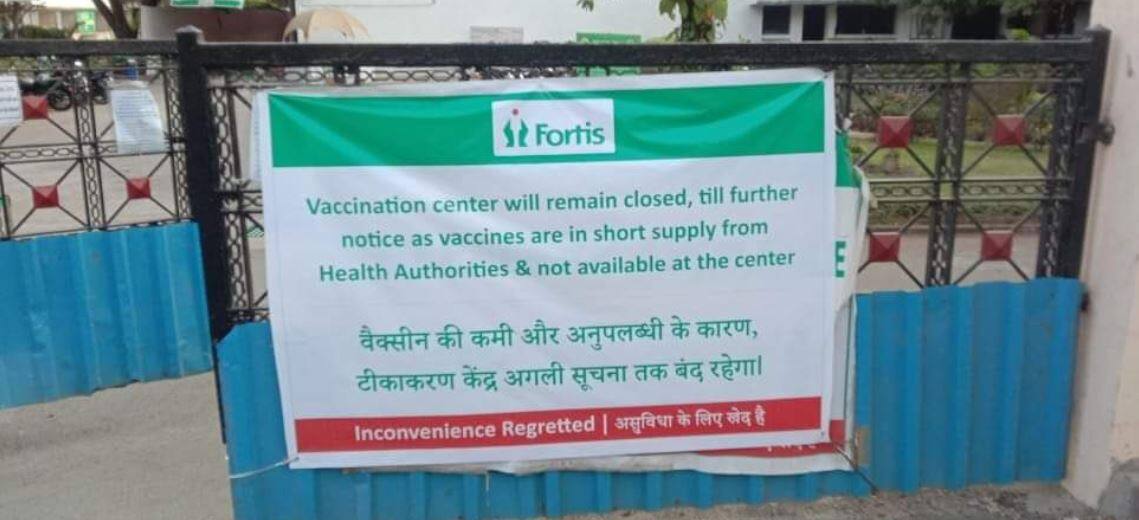Image: Reuters
For Pankaj Sharma*, who continues to commute thrice a week to office in Mumbai's Bandra Kurla Complex (BKC) despite the surge in COVID-19 cases, the latest government notice allowing companies to administer vaccines in the workplace, is a bittersweet one.
"Getting it done within the office is convenient. But nearly all my colleagues who are above the age of 45 have already got their jabs," says Sharma. His office, he points out, is close to a vaccination centre at BKC.
"The need is to vaccinate the younger ones," adds Sharma, who is also yet to qualify to get the dose.
Leena Jain, who travels daily from her home in Chembur in eastern Mumbai to Andheri, a western suburb, points out to another niggle in the government statement. "Family members are not eligible for this. How will that help?" she asks. Good question.
These are some of the queries that executives across sectors seem to be asking after the state government notification on April 7.
The notification said that beginning April 1, it will permit COVID-19 vaccination sessions at workplaces that have 100 eligible and willing beneficiaries. The move is aimed at increasing vaccine access to employees who are 45 years and above, in the organised sector.
It also aspires to scale up the vaccination drive by adding infrastructure and access to vaccines. This has become critical with a re-surge in infections that seem to be spiralling out of control in several parts of the country, including Maharashtra and Delhi.
Maharashtra added nearly 60,000 new cases on April 7, with Mumbai seeing an addition of 10,400 to its tally.
"But where are the vaccines?" asks Sharma.
Vaccine shortage
The Maharashtra government on Wednesday said its vaccine stocks will just last 3-4 days. A few districts in the state have already scaled down vaccination.
In Mumbai too, signs are visible of a vaccine shortage. Following is a picture shared by a Twitterati.
Other states too have warned about shortages. Odisha, Uttar Pradesh and Jharkhand have shot off letters to the Centre asking for urgent replenishment of vaccine stocks.
That may not be easy. Serum Institute of India, the largest manufacturer of COVID-19 vaccine, can churn out 60 million doses a month, and is contracted to export some of these. While it has talked about expanding production to 100 million a month, it may take a while before they reach their target.
The shortage is one reason why the government is yet to open procurement to private companies. Several of them, including several from the Tata Group and JSW Group, had been directly engaging with vaccine makers for supply. But first they must get the elusive government nod.

Fresh restrictions
There are other logistical challenges as well.
Among the several fresh restrictions that local administrations have imposed, many private offices may be forced to close doors and send all their employees to work from home. In Mumbai for instance, all private offices, barring a few exceptions, will remain closed till April 30.
"If most of the offices will be closed, then how will the vaccination take place," asks an executive from a manufacturing company.
With so many questions, it was no surprise that all the companies that Moneycontrol reached out to, declined to comment. "We will need to check," was the common response. They can hardly be blamed.
*Names changed on request